How to Unclog a Septic Tank (9 Expert Tips)
-
Pete Ortiz
- Last updated:
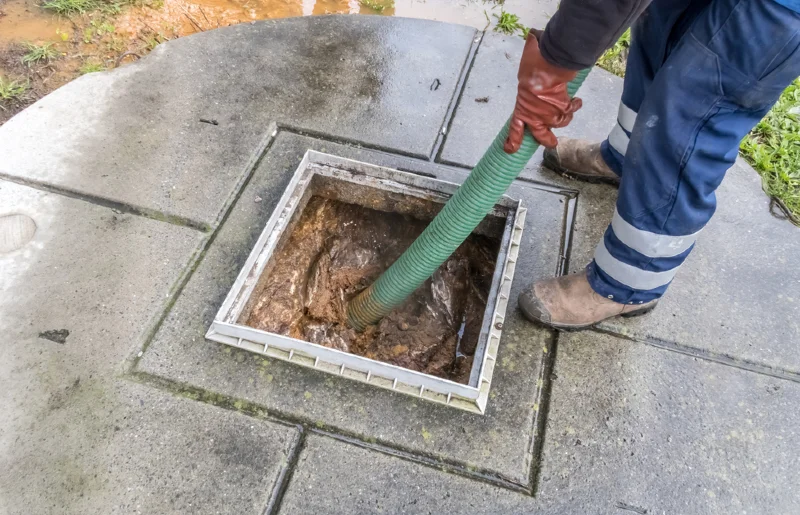
When septic tanks work, they’re great, but when they’re not working, it can be the thing of nightmares—unpleasant odors coming from the drain, slow draining, or backed-up drains that don’t drain at all.
The good news is that there are a few DIY tips and tricks you can use to try to unclog your septic tank. It might be a messy job, but if you can do it yourself, you can save quite a bit of money compared to hiring a professional.
The 9 Expert Tips for Unclogging a Septic Tank
1. Check All the Drains
Before you head out to the septic tank and start trying to clear things up, you need to ensure the septic tank is the problem. If the problem is only at a single drain inside your home, the problem is not the septic tank.
However, if the problem is across all the drains in your home, then the septic tank is the likely culprit. By taking the time to figure out what’s going on before you start trying a ton of repairs, you can save yourself a ton of time and frustration.
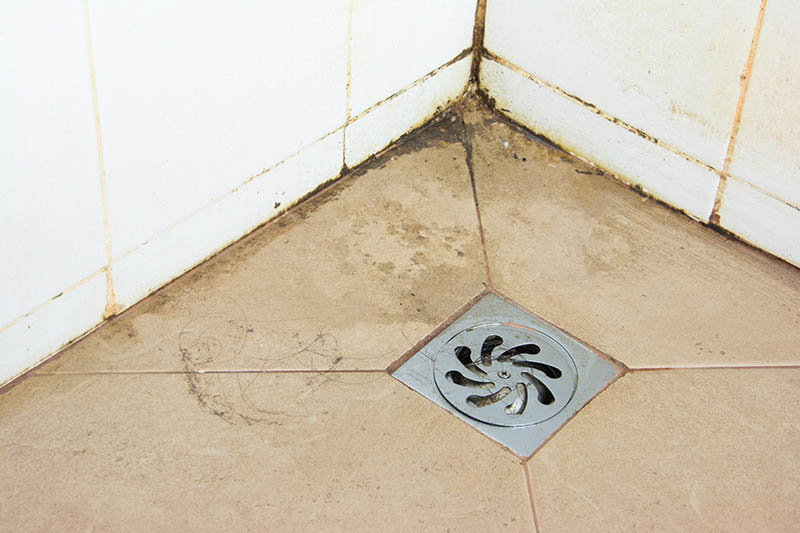
2. Start With the Main Pipe
When cleaning your septic system, you need to start with the main pipe in the center of the septic system. There are a few different ways you can clean it out, but if you start with other components, you’re not going to get the desired results. You need to stir up and remove any blockages in the main pipe to get the entire system flowing again.
3. Clean the Inlet and Outlet
After you clear out the main pipe, it’s time to check both the inlet and outlet pipes. Sewage needs to have the space to get into the septic tank, and it needs to be able to leave at the right time.
Problems with the inlet or outlet pipes will block up the system, and when you’re clearing things up, it’s important to clean both these pipes.
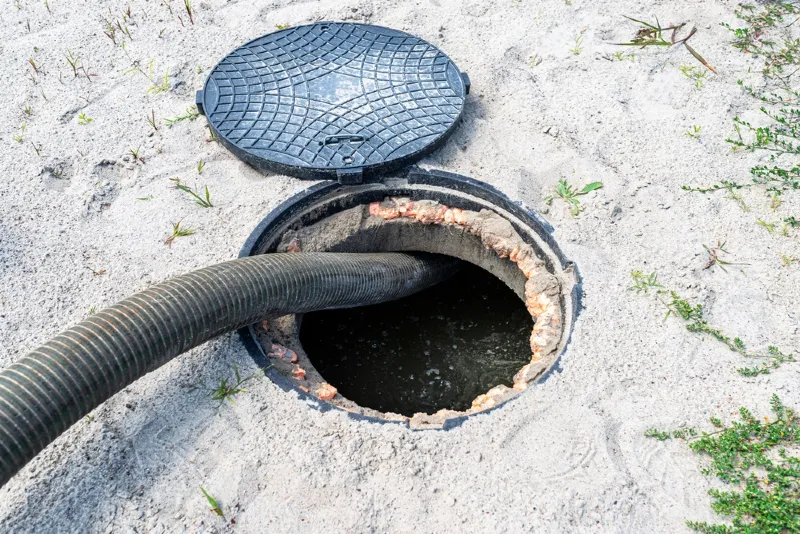
4. Use Baking Soda and Vinegar
If you only have a minor clog and want to see if you can clear it up without opening the septic tank, try a baking soda and vinegar solution. Pour 1/3 of a cup of baking soda down the drain then pour 1/3 of a cup of vinegar.
Not only can this help break down grease and gunk that cause small clogs, but it will help eliminate any unpleasant odors working their way up the drain.
5. Try Hot Water
Hot water is another solution that might help if you only have small clogs in your drain. Hot water works best when you periodically pour it down the drain, so try it about once a week.
Not only can it help unclog a drain, but it can also help prevent clogs from building up in the first place. It’s a quick and easy preventative tip that can keep the drains in great shape.
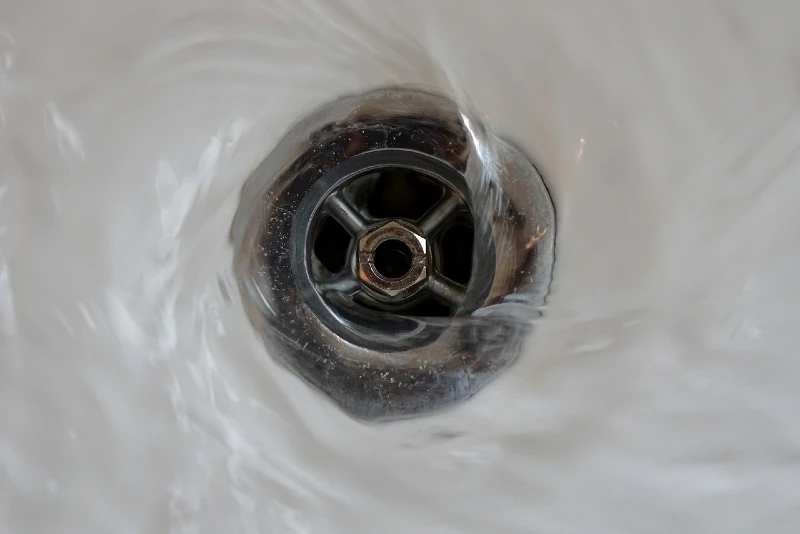
6. Try a Bent Hanger
When you’re trying to unclog your septic system and don’t have an auger or any of the professional tools, a bent hanger might be able to bail you out. It’s not going to work as well, but it should be enough to help clear up small clogs.
Leave the hook on the end but straighten the rest as much as possible. From there, insert it into the clog and spin it around to try and break up the clog. Use the hook to pull out clogs and take your time. It’s not the quickest solution, but it’s still pretty effective.
7. Check the Distribution Box
The purpose of the distribution box is to help send the sewage to the right location on the leach field. However, while it usually does a good job getting everything where it needs to go, sometimes gunk and sewage can build up causing a blockage.
Removing the blockage should clear up the problems you’re having, but go ahead and clean out all the pipes while you’re already cleaning them.
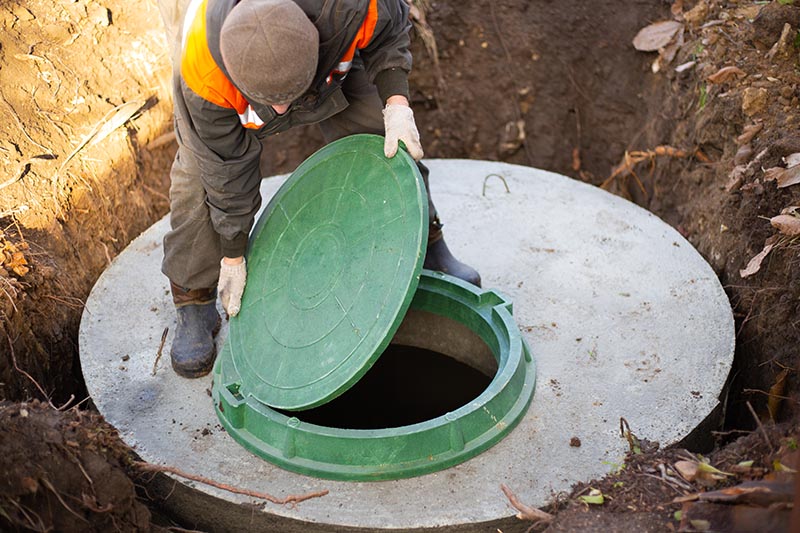
8. Disinfect Your Tools
Anytime you stick anything into the septic tank you need to disinfect it afterward. Use a bleach solution to clean off all the tools before storing them. Also, it’s a good idea to wash your hands and potentially wear a mask of some sort when working in the septic tank for your own protection.
9. Contact a Professional
If you’ve tried all the options on our list and you just can’t figure it out, it might be time to reach out to a pro. They have more advanced tools and techniques that can help break up stubborn clogs, and they can drain out the septic tank in the process.
This makes it easier for them to reach things and get the job done. Don’t wait too long to reach out either. Otherwise, the clog can get worse and the repairs can get more expensive.
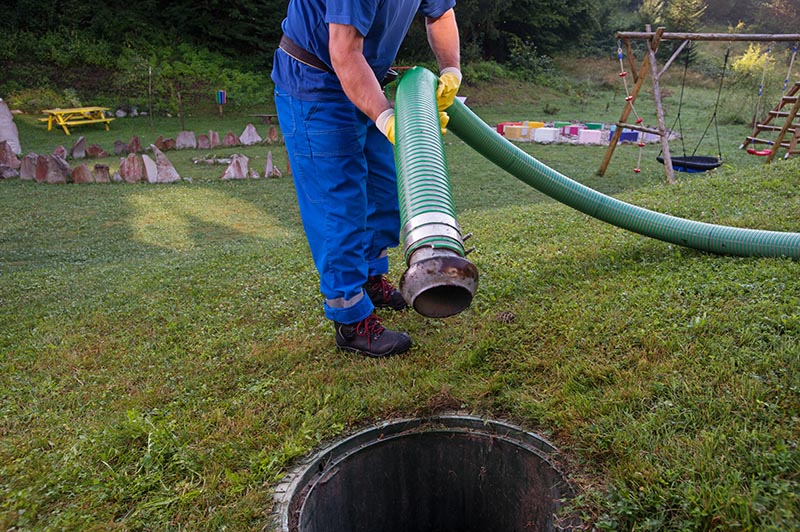
Consult a PLUMBING expert
Find a plumbing specialist in your area, and get free, no-commitment estimates for your project.

Conclusion
Don’t wait to try and unclog your septic tank. The sooner you start, the easier it should be to fix the problem, and the less likely it is that you’ll need to call a professional for help.
Not only that but if you need to call a professional, the sooner you do it, the less likely that the clog has created additional problems they’ll need to address. Catch and fix problems while they’re small and it’s much easier for you and your bank account!
- https://www.wrenvironmental.com/blog/2022/may/how-do-you-unclog-a-drain-with-a-septic-system-/#:~:text=Mix%201%2F2%20cup%20of,that%20has%20cleared%20the%20obstruction.
- https://www.pipsisland.com/5-steps-to-unclog-pipe-going-to-septic-tank/
- https://www.usaplumbing.info/tips/how-to-unclog-a-drain-and-septic-tank-tips-and-tricks
Featured Image Credit: Marcel Derweduwen, Shutterstock
Contents


